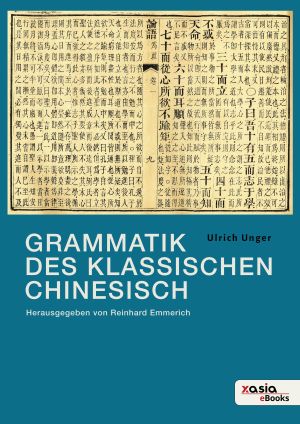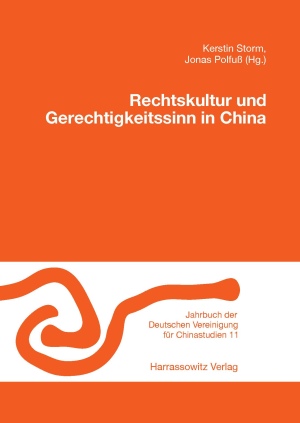Emmerich, Reinhard
Grammatik des Klassischen Chinesisch
The Grammar of Classical Chinese, which until now was only partially distributed among the author’s friends and students, has now been published as a whole. Initially created as nine volumes, written roughly between 1980 and 2000, the grammar was digitally revised and merged into one edition. Its subject, Classical Chinese, is defined by Unger as the language of the 5th to the 3rd century BCE, the final period of Old Chinese and the actual age of formation of Chinese culture. Unger’s working method was to extract the relevant grammatical categories from the language itself. As the most comprehensive Western language description of the Classical Language to date, it shall serve as a reference work among both experts and advanced students, who aim to gain a deeper understanding of Classical Chinese.
Rechtskultur und Gerechtigkeitssinn in China
Already early writings from China are shaped by discourses on order and law within and between states. Whether in the philosophical debate between Confucianism and Legalism, or in the discussion and interpretation of criminal law by civil servants at court, the understanding of law and the sense of justice remained of central importance throughout the history of the Chinese empire. Even today, China is a source of controversy with regard to crime, criminal law and ethics. In particular, Chinese characteristics and foreign influences are being critically discussed at home and abroad. In China's current social discourse, questions of social justice and equality of opportunities, which are also related to the legitimacy of the Chinese government, are of core interest. The range of topics related to law and justice outlined here was the focus of the 25th annual conference of the German Association for Chinese Studies (DVCS), which took place in Münster on November 7-9, 2014. This conference volume brings together contributions by elevenauthors who approach law and justice in China from philological, philosophical, literary, historical, sociological, political and, last but not least, jurisprudential perspectives. The volume spans the full range of Chinese studies both methodologically and chronologically by analysing relevant issues from the Western Zhou period to the recent present. The result is a multi-faceted interim state of scholarly discussion that also provides a well-grounded basis for future discussions.
For technical reasons there may be minimal differences between this digital version and the print version from Harrassowitz.









